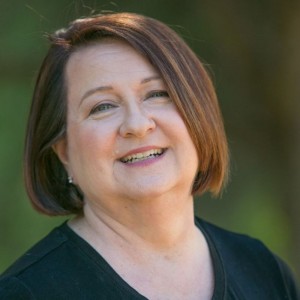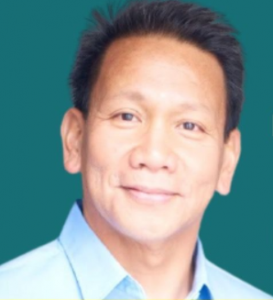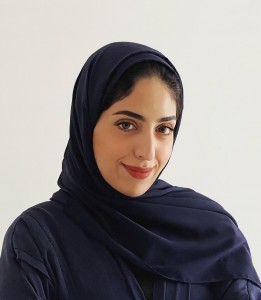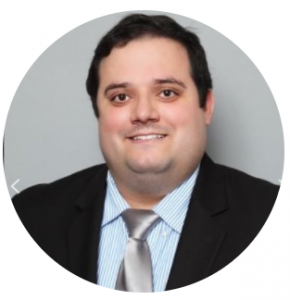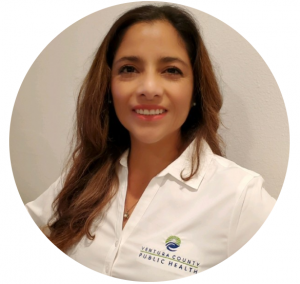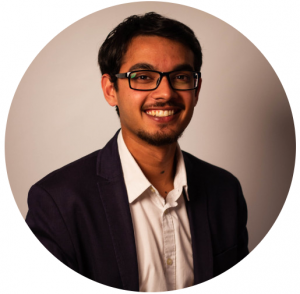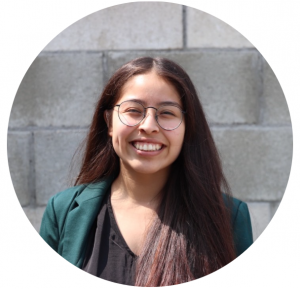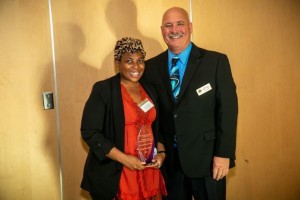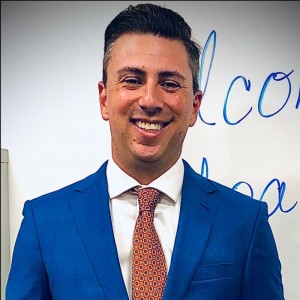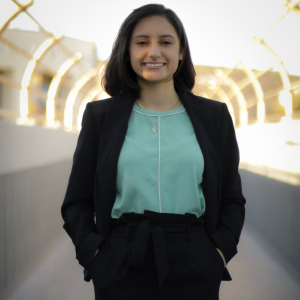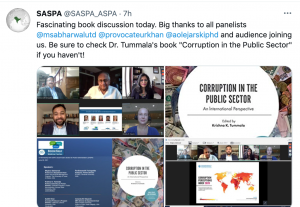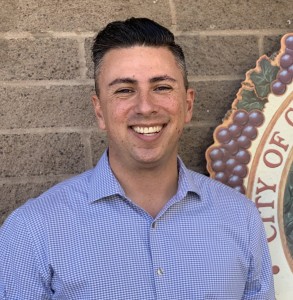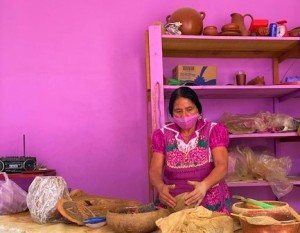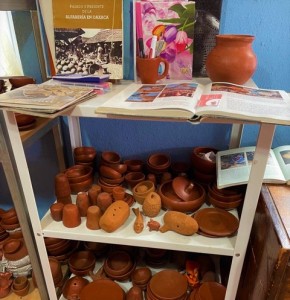
Spring 2022 Newsletter
Message from the Director
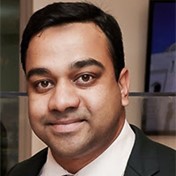
Sabith Khan, Ph.D.
Program Director & Assistant Professor, MPPA
Welcome to 2022!
I started this year by setting a new goal: to read more. The past two years have taken a sort of strange effect on all of us, and I have not been immune from it. To address this, I felt it was necessary to read more and widely. The past two years have taken a sort of strange effect on all of us, and I have not been immune from it. To address this, I felt it was necessary to read more and widely. One such book that I am re-reading is called the Moral Imagination by John Paul Lederach, one of the influential thinkers (at least in the West) of conflict resolution. I first read this book as a grad student at Syracuse University 11 years ago. The lessons of this book seem relevant to today, as they were when it was written.
Lederach’s core thesis is that we can transcend violence and differences by “the capacity to generate, mobilize and build the moral imagination.” By moral imagination he means the ability to have the imagination and the belief in and pursuit of the creative act. It also means to have complex thinking and ability to assume the risk that lies when one steps beyond the predictable response and even being able to trust people one would not, under normal circumstances.
As we deal with multiple crises before us, all of which can have deadly consequences– a global pandemic that refuses to go away totally, a fractured political landscape made worse by disinformation campaigns– we need to ask ourselves: How do we develop this moral imagination; is it even possible in our day and age? Or, the converse question: What if we don’t find common ground and accept facts when they are presented to us?
On a related note, the debate around how much control governments need to exercise over our day-to-day activities persists, both in the US and in other parts of the world. We are facing what sociologist Gil Ayal calls a crisis of expertise, meaning that experts are perhaps being questioned as much as being relied on in making key decisions that regulate our daily lives. Science is also under attack with disinformation, vaccine hesitancy and the like, taking a real toll on people across the world.
We are planning new courses, including faculty-led travel seminars. We plan to cover Sacramento, Mexico, and Ecuador. Hopefully, with travel making a comeback, we will be able to take our students to these places to share not just knowledge but also to create educational experiences which they will cherish for a lifetime.
In the meanwhile, stay safe and write to us if you have any ideas, concerns, or programmatic suggestions.
Message from Faculty
Loredana Carson, Ed.D.
If you are a student or program graduate who has taken out a student loan to cover the cost of your graduate MPPA degree, and if you currently work for a public sector or non-profit employer, then the recent announcements regarding Public Service Loan Forgiveness (PSLF) might be of interest to you. In case you have never heard of this plan, the website defines the program in this way: “The PSLF Program forgives the remaining balance on your Direct Loans after you have made 120 qualifying monthly payments under a qualifying repayment plan while working full-time for a qualifying employer” (Public Service Loan Forgiveness, 2022).
And yes, “120 payments” means 10 years of payments, but often 10 years is not enough to discharge the entire loan so having the balance of the loan forgiven after this time can be liberating and is well worth the while of investigating. Historically, this program has not functioned very well and there have been many difficulties for individuals who were in fact qualified but whose loan forgiveness plans were not enacted properly. That is why it is worthwhile to stay up on changes to the plan and to monitor the website for updates on a regular basis if you work for a public sector or qualifying non-profit organization. The website details the employer requirements and provides information on how to apply for the program. The Biden administration has been slower than they had hoped to be in making changes to get this program functioning efficiently. Any changes made to this point have come about as a result of presidential Executive Action. However, the federal Department of Education is also using this time to rewrite the regulations to improve program delivery. Recently, the Department of Education participated in a negotiated rulemaking session in which the department laid out proposed changes to the program, including: automating employment certifications, simplifying payment counts, and creating an appeals process to streamline the lengthy steps required to protest a disputed decision.
Unfortunately, the stakeholders involved in the negotiation (e.g., student loan borrowers, legal service advocates, school and government officials) failed to come to an agreement about these proposed changes, which throws the ball back into the Department of Ed’s court and allows them to decide which suggestions, if any, they will incorporate into the final rule. The estimated timeline shows that the new regulations are scheduled to appear in 2023.
In October of 2021, the Biden administration temporarily issued a limited PSLF Waiver which provides some relief to those currently enrolled in the program. Those details are explained here. I suggest you bookmark these pages and check back frequently if you are considering applying for this program. One of the main complaints to date has been that it shouldn’t be so difficult to receive this benefit, which was created to encourage people to consider careers in the public sector.
The Public Sphere
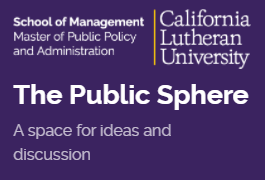 MPPA’s blog that houses articles about pertinent topics ranging from current events, public administration, public policy, and, most recently, student and alumni accounts of their career tips and journeys.
MPPA’s blog that houses articles about pertinent topics ranging from current events, public administration, public policy, and, most recently, student and alumni accounts of their career tips and journeys.
~Erin Niemi
 As a young person trying to establish a career in public service, one of the highlights of my 2021 was getting to intern at the County of Ventura in their Public Service Internship Program. The Program consisted of various work opportunities within different County agencies and departments (e.g., County Executive Office, Human Services Agency, the Fire Department, etc.)…
As a young person trying to establish a career in public service, one of the highlights of my 2021 was getting to intern at the County of Ventura in their Public Service Internship Program. The Program consisted of various work opportunities within different County agencies and departments (e.g., County Executive Office, Human Services Agency, the Fire Department, etc.)…
MPPA In Action
Leo Casiple
Interview: Won Toastmasters Speech Contest and Participated in Brussel’s Peacewriter Prize Competition
A highly accomplished alumni, Leo continues to give back through his talents and unique experiences to several organizations, rigorous competitions, and his alma mater CLU.
1. Congratulations on winning the Toastmasters’ Club Level International Speech Contest and participating in the Peacewriter Prize Competition! For those who don’t already know you and all your many interests and accomplishments, could you introduce yourself to the MPPA community?
Thank you. I won the Area 6 Contest in November 2021 and will advance to the Southern Division contest in March 2022. The International Speech Contest is 5-7 minutes long: anything less than 4.5 minutes or over 7.5 minutes results in a disqualification.
I did not place in the top three essays in the 2021 International Peacewriter Prize Competition, Brussels, but many colleagues have mentioned that I could teach an entire college class with the elements I wrote about.
Majd Almalki
Interview: New Director of Gender Balance Statistics at the Institute of Public Administration of the Kingdom of Saudi Arabia
Continuing to apply her MPPA knowledge, Majd is making a profound impact in her new role as a Director at the Institute of Public Administration in her home country of Saudi Arabia, where Dr. Khan recently visited with Majd and other alumni.
1. You recently received a promotion to be the Director of Gender Balance Statistics at the Institute of Public Administration of Saudi Arabia– Congratulations! Tell us about the Institute and what it seeks to achieve.
First of all, I would like to thank you for this opportunity. It is always a pleasure to share with the MPPA community what happened recently in my career. The Institute of Public Administration (IPA) is one of the leading government agencies in the Kingdom of Saudi Arabia. IPA seeks to increase the efficiency of public employees and to educate them to make them capable of shouldering their responsibilities, use their jurisdiction in a manner that would raise the level of administration, and support the foundation of national economic development.
Student & Alumni Updates
Matthew Gammariello, MPPA, JD
New Employment: Immigration Associate Attorney at Hadley Bajramovic
Matthew details his exciting new job opportunity, where he will be “practicing immigration law for one of the biggest full-service immigration law firms in the area…
I will be doing deportation removal defense proceedings, cancellation of removal, asylum cases, and DACA renewals. I will be in immigration court 2-3 days a week,” as well as potential opportunities to present before the Immigration Appeals Board like the 9th Circuit Court of Appeals.
Sara Rivera, MPPA
New Employment: Health Equity Manager at Ventura County Public Health
New Employment: Assistant Staff Analyst at Los Angeles Department of Public Health
In describing his new career, Nathan states: “Working for the LA Department of Public Health during a historically significant time has been an unique experience. The preconceived notion that I had about government work being slow and/or un-innovative couldn’t be further from the truth. I am thoroughly enjoying my work and look forward to furthering my career in the public space.”
Oscar Trujillo, MPPA
New Employment: Academic Services Coordinator at CLU
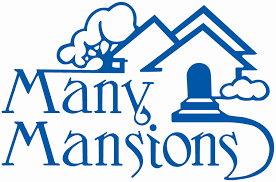 Tina Seacrese & Patricia Palao Da Costa
Tina Seacrese & Patricia Palao Da Costa
New Board Directors at Many Mansion
Many Mansions is a nonprofit organization that serves low-income families and individuals in Ventura and Los Angeles counties by providing affordable housing and many other services.
Helping thousands of lives annually, Tina and Patricia are honored to have been chosen to serve on Many Mansions Board of Directors and look forward to volunteering their time and expertise to assist Many Mansions increase their impact for the many others needing its assistance.
Leslie Madrigal
New Employment:
Financial Aid Operations Assistant at CLU
2020 Hamm Award: Champion of the Vulnerable
The William E. Hamm Award seeks to spotlight the work extraordinary volunteers accomplish to impact California Lutheran University and their local communities.
In speaking of Dichele, the University published: “Over the years, she has served Cal Lutheran on university advisory councils… During the pandemic Harris provided outstanding leadership and extraordinary community support in the Conejo Valley to the homeless and others in need… She is a most extraordinary individual, admired and respected by the many volunteers in this community who work alongside her and nominated her for this award.”
Christine Birabwa, MPPA
New Employment:
Technical Specialist at County of Ventura
New Employment:
Assistant City Manager at City of Carpinteria
Hitting the ground running, Mike talks about his aspirations within his new leadership role in the City of Carpinteria in his recent Q&A session with the MPPA community.
Sara Martinez
New Employment:
Elections Records Technician II at County of Ventura
2021 & 2022 Capstone Projects
Fall 2021 Term
Music Program Breakdown for the Westview Family Development
Leslie Madrigal, Stephanie Rendon, Laura Vasquez
Faculty Advisor: Chris Beck
 Music is an integrated part of people’s lives that can spark a wide range of emotions and memories that last a lifetime. Studies show how music education introduced to young children “heightens children’s auditory acuity, thus increasing their ability to process language” (Etopio, et al., 2012).
Music is an integrated part of people’s lives that can spark a wide range of emotions and memories that last a lifetime. Studies show how music education introduced to young children “heightens children’s auditory acuity, thus increasing their ability to process language” (Etopio, et al., 2012).
Aside from that, there are also improvements in children’s self-identity that improve their confidence and also give them a place they have ownership of (Barber, Eccles, & Stone, 2001). Hence, this capstone will focus on developing a low-income music program for the properties owned or managed by Westview Family Development, a low-income housing unit in the City of San Buenaventura.
Winter 2022 Term
Housing the Unhoused
Ana Perez, Thiana Martinez, Veronica Navarro
Faculty Advisor: Sean Veal
The name of the capstone course is Housing the Unhoused: Skid Row Homelessness Policy Analysis. Through this project, students will analyze the court case LA Alliance for Humans Rights vs. The City of Los Angeles. They will partner with Skid Row Housing Trust, an affordable housing not-for-profit developer, to address how the court case can impact the organization and homelessness in the Skid Row Neighborhood. Through the capstone, students will address issues centered on housing policy, homelessness, economic and racial inequality, and policy implementation.
El Rio/Del Norte Area Plan Update
Debbie Canas, Jessica Diaz, Nathan Hatia, Tina Secrease, Lisa Vaiman
Faculty Advisor: Jacqui Phelps
The project is in partnership with the County of Ventura Resources Management Agency, and the students will be researching and analyzing existing laws and policies relating to environmental justice in order to propose recommendations for the El Rio/Del Norte Area Plan Update.
Faculty & Staff Updates
Summer Term Schedule
Students Can Register Now!
Dr. Sabith Khan
Second Place Prize in the Voinovich Innovation Challenge
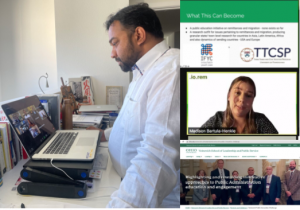 In detailing his experience with the competition, Dr. Khan stated: “I participated in the… Ohio University‘s Voinovich innovation challenge – a national competition with over 38 entries (hosted by NASPAA), with MPPA student Madison Bartula-Henkle for a project that we are involved in: IOREM, a research collaborative of scholars engaged in migration and remittances. We won the second prize! Thanks to all parties involved, in promoting this initiative and for highlighting the role of research and public education in this process.”
In detailing his experience with the competition, Dr. Khan stated: “I participated in the… Ohio University‘s Voinovich innovation challenge – a national competition with over 38 entries (hosted by NASPAA), with MPPA student Madison Bartula-Henkle for a project that we are involved in: IOREM, a research collaborative of scholars engaged in migration and remittances. We won the second prize! Thanks to all parties involved, in promoting this initiative and for highlighting the role of research and public education in this process.”
Read about Madison’s experience with IOREM and the competition in her recent blog post here.
Steve Mermell
Retirement from City Management in City of Pasadena
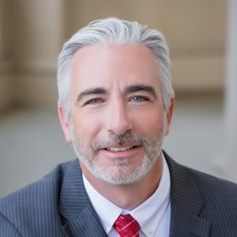 After five years of dedicated service as the City Manager for the City of Pasadena, and more than thirty years of public service, Professor Mermell announced his retirement plans last fall for this new year of 2022. We are grateful for the expertise and enthusiasm Professor Mermell brings in the courses he will continue to offer for the MPPA program, and we congratulate and commend him for his many years of remarkable service he provided for the City of Pasadena!
After five years of dedicated service as the City Manager for the City of Pasadena, and more than thirty years of public service, Professor Mermell announced his retirement plans last fall for this new year of 2022. We are grateful for the expertise and enthusiasm Professor Mermell brings in the courses he will continue to offer for the MPPA program, and we congratulate and commend him for his many years of remarkable service he provided for the City of Pasadena!
PJ Gagajena
New Adjunct Professor
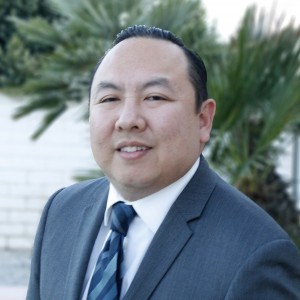 PJ Gagajena proudly serves as the Assistant City Manager for the City of Moorpark. As Chief Operations Officer, he oversees the City’s daily operations serving 36,326 residents and an annual budget of nearly $60 million. His 20-year career in local government includes working for the cities of Los Angeles, New York, Indio, and Torrance. PJ earned a Bachelor of Arts degree in Political Science with a Minor in Asian American Studies from UCLA and holds Master’s degrees in Public Policy and Urban Planning from Harvard University’s Kennedy School of Government. Professor Gagajena will be teaching this Spring’s Emergency & Crisis Management course!
PJ Gagajena proudly serves as the Assistant City Manager for the City of Moorpark. As Chief Operations Officer, he oversees the City’s daily operations serving 36,326 residents and an annual budget of nearly $60 million. His 20-year career in local government includes working for the cities of Los Angeles, New York, Indio, and Torrance. PJ earned a Bachelor of Arts degree in Political Science with a Minor in Asian American Studies from UCLA and holds Master’s degrees in Public Policy and Urban Planning from Harvard University’s Kennedy School of Government. Professor Gagajena will be teaching this Spring’s Emergency & Crisis Management course!
Dr. Khan & ASPA
Limited, Free Memberships for Students
The MPPA program is delighted to offer FIVE FREE memberships to the South Asia section at the American Society for Public Administration (ASPA). Dr. Sabith Khan has been appointed as the Chair of this section recently.
If you are interested in networking, getting involved, and being sponsored to receive a FREE membership to ASPA and SASPA, please email ppalaoda@callutheran.edu!
Omairah Azizi
New Program Specialist
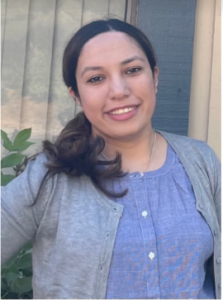 As the Graduate Program Specialist for the School of Management, Omairah supports the MPPA, MBA-FP and MS Financial Planning programs. She organizes and manages the day-to-day activities of the Graduate Programs in relation to faculty and students. In addition to supporting the directors of the programs, she performs other departmental duties including preparing class schedules for the programs in each term, coordinating full-time and adjunct faculty teaching assignments and negotiating times and class locations with instructors. She also serves as a resource to graduate students and provides lead work direction to graduate assistants and student workers. She is also a graduate of California Lutheran University with a Bachelor’s degree in Communications.
As the Graduate Program Specialist for the School of Management, Omairah supports the MPPA, MBA-FP and MS Financial Planning programs. She organizes and manages the day-to-day activities of the Graduate Programs in relation to faculty and students. In addition to supporting the directors of the programs, she performs other departmental duties including preparing class schedules for the programs in each term, coordinating full-time and adjunct faculty teaching assignments and negotiating times and class locations with instructors. She also serves as a resource to graduate students and provides lead work direction to graduate assistants and student workers. She is also a graduate of California Lutheran University with a Bachelor’s degree in Communications.
Omairah’s Contact Information
CLU Campus: Pioneer House
Email: omairahazizi@callutheran.edu
Phone: (805) 493-3678
Dr. Loredana Carson
Education Policy Offered This Summer Term
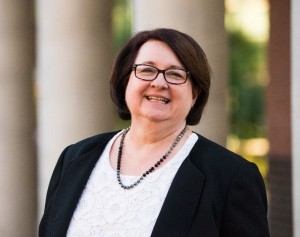 Elective course highlight! Describing her course, Dr. Carson shares: “This summer on Wednesday evenings I will be teaching Education Policy (PA 582-01) as an elective offering. Each week the class is structured around a central question that helps students understand the purpose of education in a wider context than how it typically portrayed. The class is interactive and enlightening, and I bring in guest speakers as available to discuss these and other important matters that pertain to education policy. You don’t have to be an educator to be impacted by education policy issues. We are all to some extent a product of our current system and understanding how it works (and doesn’t work) can be helpful to us moving forward. Please feel free to reach out if you have any questions about this class.”
Elective course highlight! Describing her course, Dr. Carson shares: “This summer on Wednesday evenings I will be teaching Education Policy (PA 582-01) as an elective offering. Each week the class is structured around a central question that helps students understand the purpose of education in a wider context than how it typically portrayed. The class is interactive and enlightening, and I bring in guest speakers as available to discuss these and other important matters that pertain to education policy. You don’t have to be an educator to be impacted by education policy issues. We are all to some extent a product of our current system and understanding how it works (and doesn’t work) can be helpful to us moving forward. Please feel free to reach out if you have any questions about this class.”
International Meetings
Alumni in Saudi Arabia Meet with Dr. Khan
Dr. Khan, Program Director of MPPA met up with Saudi alumni on his recent trip to Riyadh, KSA. The first photo on the left (from left to right) pictures Majd Al Malki, Director of Gender Balance Statistics at the Institute of Public Administration; Majd’s colleague and prospective student; and Dr. Khan and his wife, Fabiola Lara. The second photo on the right (from right to left) pictures Muhannad Al Khamis, External Auditor at GOSI; Abdullah Aldokhail, General Entertainment Authority; and Dr. Khan and his wife, Fabiola Lara.

